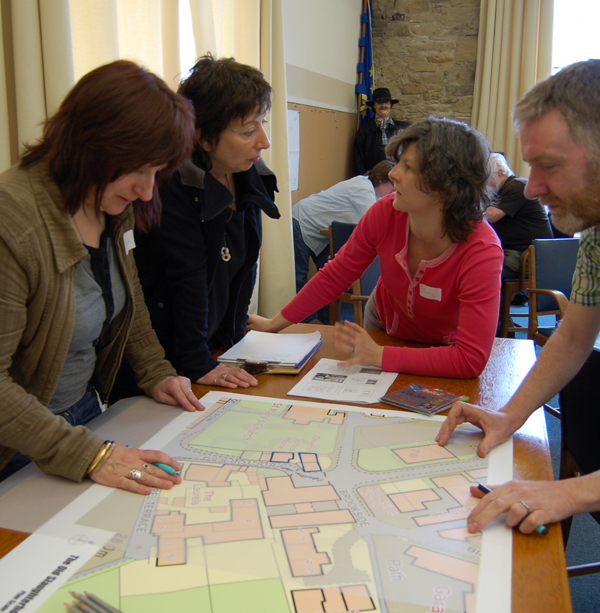Written by:
This blog post was first published on the Future of Cities blog run by Foresight Projects, part of the Government Office for Science
The Future of Cities paper, Comparative urban governance, begins with a clear and concise definition:
Urban governance refers to the process through which democratically elected local governments and the range of stakeholders in cities – such as business associations, unions, civil society and, of course, citizens – make decisions about how to plan, finance and manage the urban realm.
However, our governance landscape is complex. The UK has adopted a range of governance models in different rural and urban contexts, and these mechanisms and processes are vulnerable to changing economic, political and social trends and agendas.
At our recent Glass-House debate ‘Do the right people have power in place?’, in Sheffield on 19 November 2014, we explored people’s sense of agency, their ability to engage with a decision-making system that they do not fully understand and in which their role and potential for influence is not clear. There was a shared feeling that there is very little awareness of the mechanisms and processes that support decision-making around place.
There is a need to improve our literacy around these processes, but how realistic is it for the average person to fully understand these processes, or indeed care enough to take the time to do so, when it is quite possible that the next political cycle could throw these processes up in the air again?
Good governance benefits from long-term vision, and for that to be sustainable, it cannot rest solely in the hands of systems and leaders that are vulnerable to short-term political cycles. In a representative democracy, we put our trust in elected officials to engage in, indeed to lead, governance systems on our behalf. However, one of the most striking challenges is the “democratic unrepresentativeness” of local government: the turnout rates for local elections usually “hover in the mid-30% range.” (see Comparative Urban Governance, p. 38). And with the share of citizens who identify with a political party falling from 64% in 1964 to just 14% in 2001 2, there is even more tension in representative democracy as a route to decision-making on urban governance in the UK.

Is participatory democracy the answer, and if so, how does that sit alongside representative democracy in urban governance? How can our planning policy and mechanisms genuinely support empowerment in a fair and accessible way?
Leadership of our places must come from a number of diverse and varied champions working together around shared objectives and using a broad spectrum of mechanisms and processes. The success of any place benefits from the knowledge and participation of local people, organisations and networks, operating within ‘official, political’ processes, but also through informal and user-driven decision-making and action. Current governance systems, on the whole, are still not supporting diversity and collaboration as they might because they do not recognise the official and unofficial processes as complementary, and equally essential to the success of our places.
Above all, successful urban governance relies on a shared sense of ambition for the quality of our places. Our collective vision needs to be rooted in a shared set of values around place, in ambition for great places to be universally available to everyone. It requires the efforts of all of us, from those who make planning decisions, to those who build homes, those who service our cities and each one of us in the simple decisions we make every day when interacting with our places. We need to be demanding of our elected and appointed representatives, but also continually seek to work with them, to contribute to the success and vibrancy of our places.
We all have a role to play in urban governance. Let’s be ambitious about more transparent, flexible, and responsive models for decision-making and action to support a more collaborative approach to place.

